
Skate or Die! is a skateboarding video game released by Electronic Arts (EA) in 1987 for the Commodore 64. It is EA's first internally developed game. Versions for the Apple IIGS, MS-DOS, Amstrad CPC, and ZX Spectrum followed. It was ported to the Nintendo Entertainment System by Konami, published under the company's Ultra Games branding.

Audiogenic was the name of two related UK-based businesses involved in video game publishing and development from the late 1970s until 1997. The original business started out as a recording studio and cassette duplication service which moved into video game publishing from the late 1970s onwards.
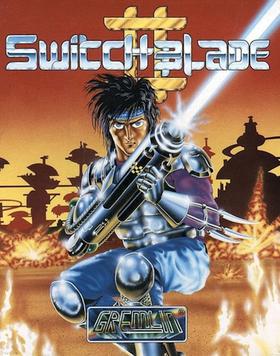
Switchblade II is a 1991 side-scrolling action-platform run and gun video game originally developed and published by Gremlin Graphics in Europe for the Amiga home computers. It is the sequel to the original Switchblade, which was solely created by Simon Phipps at Core Design and released earlier in 1989 across multiple platforms. Despite being primarily developed in the UK, its graphics had a distinctly Japanese style similar to anime or manga.

The Immortal is an isometric action-adventure game originally created by Will Harvey and released by Electronic Arts in 1990 for the Apple IIGS. It was soon ported to the Amiga, Atari ST, DOS, Nintendo Entertainment System, and Genesis. A wizard is attempting to find his mentor in a large and dangerous labyrinth. It has a high degree of graphic violence. In 2020, the NES port was re-released on the Nintendo Switch Online service, while the Genesis port was re-released on the Piko Collection Collection 1 cartridge for the Evercade.
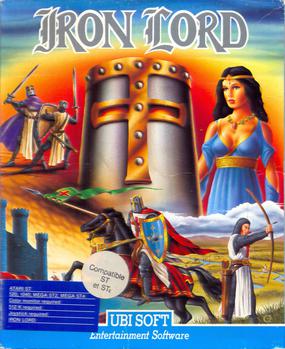
Iron Lord is an adventure video game developed by Orou Mama and Ivan Jacot for the Atari ST and published by Ubi Soft in 1989. It was ported to the Amiga, Acorn Archimedes, Amstrad CPC, Commodore 64, ZX Spectrum, and MS-DOS.

Tiger Road is a hack and slash platform game originally released in 1987 as a coin-operated arcade video game.

Checkered Flag is a racing video game released for the Atari Lynx in 1991. A remake was released for the Atari Jaguar in 1994. Destination Software also planned to release a Game Boy Advance version of the title around 2005, but it was cancelled before it was released.
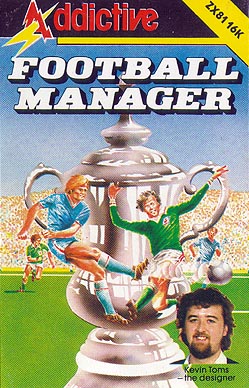
Football Manager is the first game in the Football Manager series.

Indoor Sports is a sports video game developed by DesignStar's SportTime and first published in the U.S. by Mindscape in 1987 for the Commodore 64. Indoor Sports includes simulations of bowling, darts, ping-pong, and air hockey. It was converted to the Acorn Electron, Amiga, Amstrad CPC, Apple II, Atari ST, BBC Micro, MS-DOS, and ZX Spectrum. Verisons for the Commodore 16 and Commodore Plus/4 omit Air Hockey. In Europe it was published by Databyte, Advance Software, and Tynesoft, depending on the platform.
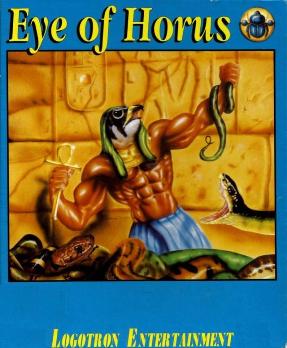
Eye of Horus is a computer game published in 1989 by Fanfare for the Amiga.

P-47: The Phantom Fighter is a 1988 horizontally scrolling shooter arcade video game originally developed by NMK and published by Jaleco. Set during World War II, players control a Republic P-47 Thunderbolt fighter aircraft to face against the Nazis, who are occupying multiple countries around the world. Its gameplay involves destroying waves of enemies, picking up power-ups and new weapons, and destroying bosses. It ran on the Mega System 1 hardware.

Robo-Squad is an action-sports game for the Atari Lynx published by Atari Corporation in 1990.
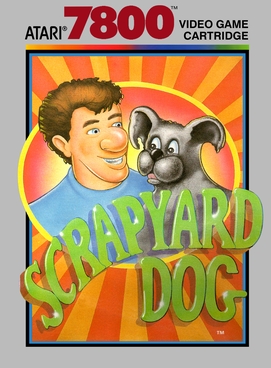
Scrapyard Dog is a scrolling platform game published by Atari Corporation for the Atari 7800 in 1990, followed by an Atari Lynx port in 1991.
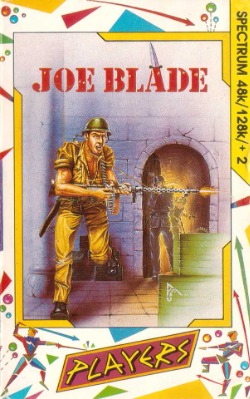
Joe Blade is a video game published by Interceptor Micros on their Players budget label for the ZX Spectrum, Commodore 64 and Amstrad CPC in 1987. It reached the top of the UK game charts, replacing Renegade. In Germany, the game peaked at number 7. It was ported to the Acorn Electron, BBC Micro, Atari 8-bit computers, MSX, Amiga, and Atari ST. A sequel, Joe Blade 2, was published in 1988. Another sequel, Joe Blade 3, was released in 1989.
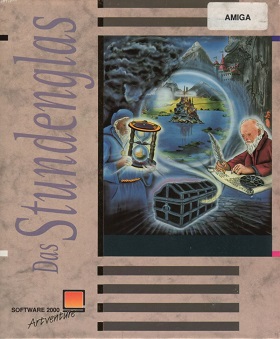
Das Stundenglas is a German text adventure game published in 1990 by Software 2000 and developed by Weltenschmiede, and released for Amiga, Atari ST and DOS. Das Stundenglas is part of a text adventure trilogy; it is succeeded by Die Kathedrale (1991) and Hexuma (1992). The trilogy lacks an overarching plot, and in each entry the setting, role of the protagonist, and goal differ between each game. Games in the trilogy do not require knowledge of the other entries and may be played as standalone games.
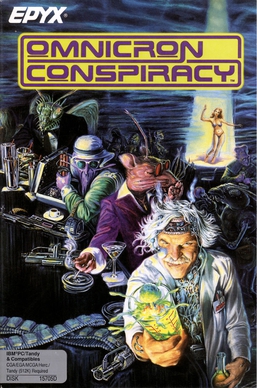
Omnicron Conspiracy is a 1989 video game published by Epyx in the United States and by Image Works in the UK and German markets.

The Seven Gates of Jambala is a 1989 platform video game developed by Thalion Software and published by Grandslam Entertainments for the Amiga and Atari ST. An Amiga CD32 port was released in 1994. 8-bit ports for the Commodore 64, Amstrad CPC, and ZX Spectrum were cancelled.
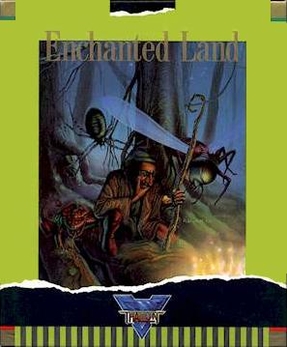
Enchanted Land is a 1990 platform video game developed and published by Thalion Software for the Atari ST. An Amiga port was released later.

Magic Lines is a 1990 puzzle video game developed by Tale Software and published by Thalion Software for the Amiga and Atari ST.
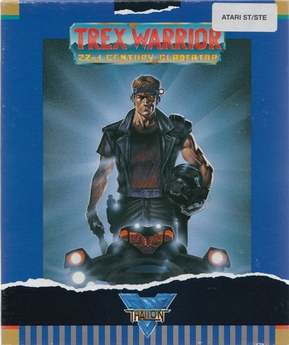
Trex Warrior: 22nd Century Gladiator is a 1991 action video game developed and published by Thalion Software for the Amiga and Atari ST. Previously unreleased in the United Kingdom, the game was released in 1993 on The One magazine cover disk as public-domain software.




















